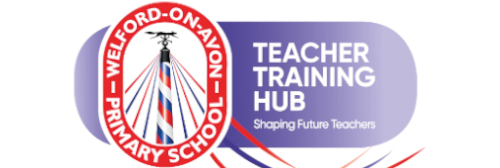RE

Coventry and Warwickshire Agreed Syllabus for Religious Education 2017 – 2022

Intent
We want our children to become independent and responsible members of a society who understand and explore big questions about life, to find out what people believe and what difference this makes to how they live, so that they can make sense of religion while reflecting on their own ideas and ways of living. Children will be supported to engage and think rigorously and creatively in order to make informed judgements; they will come to understand that it is acceptable to have doubts and to disagree in a reasoned and sensitive way. In the process, they will develop an aptitude for dialogue so that they can participate positively and develop the skills to be able to examine and reflect on a range of questions about spirituality and identity, morality, values and commitments. We want them to know that religious education promotes discernment and enables pupils to combat prejudice therefore preparing them to be thoughtful members of our diverse and multi-cultural society.
Implementation
Welford on Avon Primary RE curriculum follows the Coventry and Warwickshire Agreed Syllabus, 2017. We use the Discovery RE programme as our scheme of work.
“Through their work pupils should learn that religions have a commitment to morality and social justice promoting social and ethnic harmony. RE in Coventry and Warwickshire Schools should be challenging, inspiring and fun.”
RE is taught through discrete lessons. The topics and vocabulary have been organised and sequenced in a logical way to allow new knowledge to build on prior learning.
By following Discovery RE at Welford on Avon Primary School, we intend that Religious Education will:-
- Adopt an enquiry-based approach as recommended by Ofsted, beginning with the children’s own life experience before moving into learning about and from religion.
- Provoke challenging questions about the meaning and purpose of life, beliefs, the self and issues of right and wrong, commitment and belonging. It develops pupils’ knowledge and understanding of Christianity, other principal religions and religious traditions that examine these questions, fostering personal reflection and spiritual development.
- Encourage pupils to explore their own beliefs (religious or non-religious), in the light of what they learn, as they examine issues of religious belief and faith and how these impact on personal, institutional and social ethics; and to express their responses.
- Enable pupils to build their sense of identity and belonging, which helps them flourish and helps to challenge prejudice.
- Prompt pupils to consider their responsibilities to themselves and to others and to explore how they might contribute to their communities and to wider society. It encourages empathy, generosity and compassion.
- Develop a sense of awe, wonder and mystery.
- Nurture children’s own spiritual development.
How is RE organised in this school?
Discovery RE brings together learning about and from religion, questioning and spiritual development in a comprehensive scheme of learning. Teaching strategies are varied and are mindful of preferred learning styles and the need for differentiation. Each enquiry starts from the children’s own life experiences using these as a bridge into the investigation of the religion being studied.
Learning is assessed and children have opportunity to express their own thoughts and beliefs and empathise with believers of that religion or belief position.
External contributors
RE gives particular opportunities to promote an ethos of respect for others, challenges stereotypes and build understanding of other cultures and beliefs. This contributes to promoting a positive and inclusive school ethos that champions democratic values and human rights. The British Values agenda is intrinsic to Discovery RE and a map of coverage is available on request.
External contributors from the community, e.g. local clergy, local members/speakers from other religions etc make a valuable contribution to the RE programme as do visits to places of worship. Their input is carefully planned and monitored so as to fit into and complement the programme.
Teachers are always present during these sessions and remain responsible for the effective delivery of the RE programme.
The Learning Environment
Establishing a safe, open and positive learning environment based on trusting relationships between all members of the class, adults and children alike, is vital. To enable this, it is important that respect for each others’ views and beliefs and those of the believers of that religion is encouraged at all times and that any artefacts are handled with respect and care.


